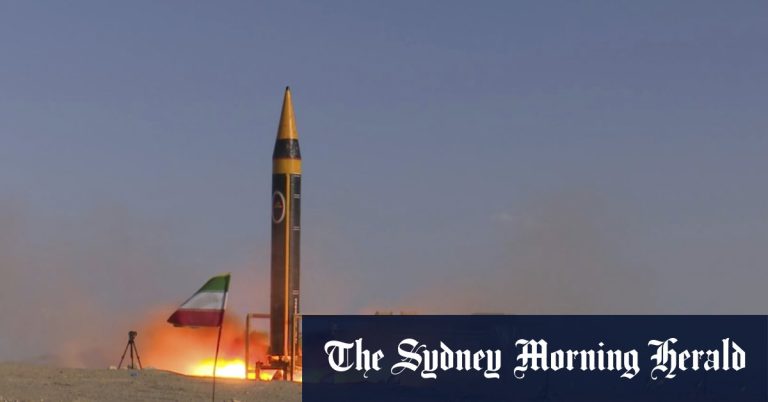Iran has fought in the border areas against militants, but the missile and drone attack on Pakistan is unprecedented. Iranian reports described the strikes as occurring in the mountains of Pakistan's Balochistan province. Balochistan has been facing a low-level insurgency by Baloch nationalists for more than two decades. Baloch nationalists initially wanted a share of the provinces' resources, but later began a rebellion for independence.
The attack came as Iranian Foreign Minister Hossein Amir Abdollahian met with Pakistani interim Prime Minister Anwar Haq Kakar on the sidelines of the World Economic Forum in Davos, Switzerland. It was not immediately clear what the men discussed.
Pakistan has become the second country neighboring Iran to complain within two days of an air strike launched by the Islamic Republic on its territory within 24 hours.
Iraq criticized the deadly attack on what Tehran said was an Israeli spy base on Iraqi soil by the Revolutionary Guards on Monday. Iran said that its attack came in retaliation for Israel's assassination of one of its leaders in Syria.
Iraqi Prime Minister Mohammed al-Sudani said in an interview in Davos on Tuesday that the attack was a “clear act of aggression.”
Al-Sudani's comment indicates that tensions are rising across the region, as Israel's war against Hamas passes 100 days.
Iran has long suspected that Sunni-majority Pakistan is hosting insurgents, perhaps at the behest of its regional rival Saudi Arabia. However, Iran and Saudi Arabia reached a Chinese-brokered detente last March, easing tensions.
The attack on Pakistan comes at a time when Tehran launched an attack on a double suicide bombing this month, claimed by the extremist Islamic State group, which killed more than 90 people.

Launch of a Tomahawk ground-attack missile from the guided-missile cruiser USS Cape St. George in December.credit: AP
American strikes
Meanwhile, the United States launched a new strike against the Houthis based in Yemen, hitting anti-ship missiles in the third attack on the Iran-backed group in recent days, the US military said.
According to the US Central Command statement, the night raid destroyed four Houthi ballistic missiles that were prepared for launch, and posed an imminent threat to US commercial and naval ships in the region.
Earlier, the Iran-backed Houthis claimed responsibility for a missile attack on the Maltese-flagged bulk carrier Zogravia, also on Tuesday, in the Red Sea.
The ship was hit, but no one was injured. The Greek Ministry of Shipping and Island Policy said the ship was heading north toward the Suez Canal when it was attacked.
This latest exchange indicates that Houthi attacks on shipping in the region have not stopped, despite the massive US and British attack on the group last week. They bombed more than 60 targets in 28 locations using Tomahawk missiles launched from warships, submarines and fighter aircraft.
Bloomberg, AP
Get a direct note from our foreigners Reporters About what's making headlines around the world. Subscribe to the weekly What in the World newsletter here.

